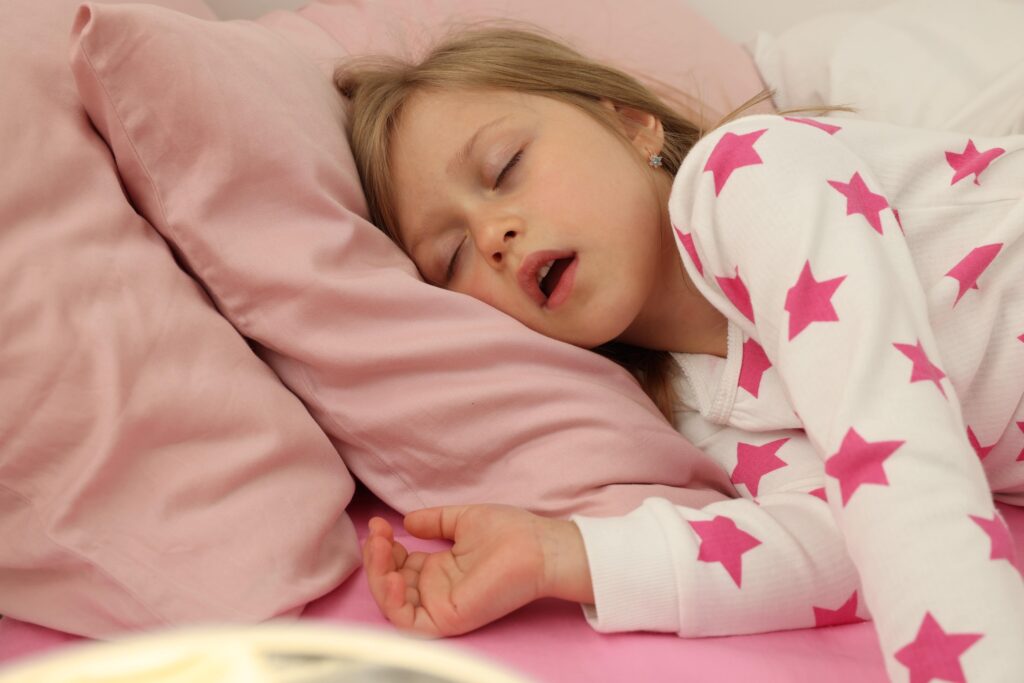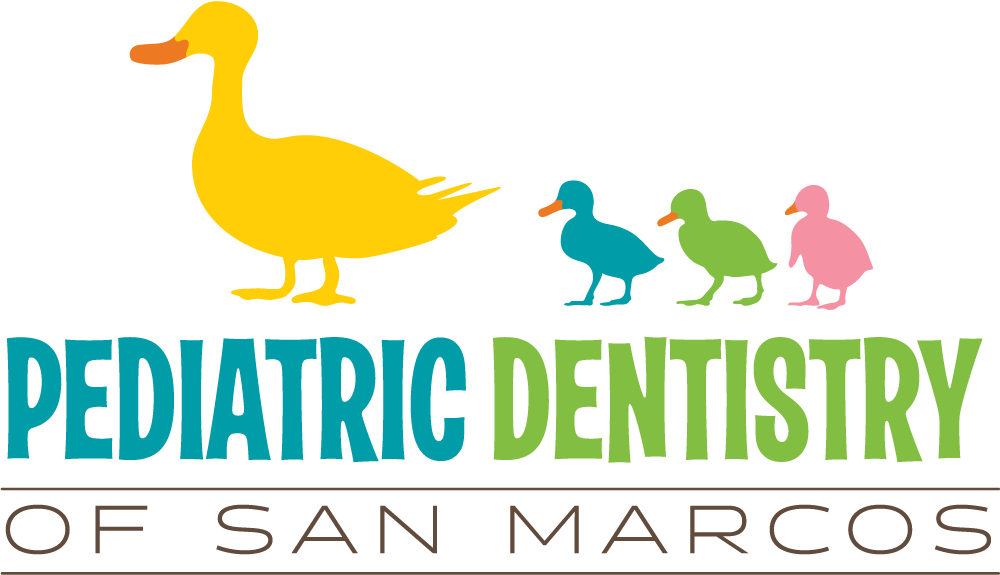Mouth Breathing: What Parents Need to Know

Did you know that mouth breathing can impact your child’s health? If not corrected, it can lead to poor oral health, speech problems, sleep disorders, and can even affect the facial appearance. Our experienced pediatric dentists and the kid-friendly team at Pediatric Dentistry of San Marcos have put together a guide to help parents understand mouth breathing and its impacts on a child. We’re here to support your little one’s smile every step of the way!
What Are the Causes of Mouth Breathing?
Mouth breathing can result from a cold or a stuffy nose, which is no cause for alarm. However, persistent mouth breathing can result from blocked nasal passage, enlarged adenoids or tonsils, a deviated septum, or sinus problems. The shape of the mouth and jaw can also lead to mouth breathing, or it may be just a bad habit your child has acquired.
What Are the Signs and Symptoms of Mouth Breathing?
The most common signs of mouth breathing include the following:
- Loud snoring
- Teeth grinding during sleep
- Speech difficulties
- Dry lips or a dry mouth
- An unpleasant or strong mouth odor
- Increased crying or bedwetting at night
- Waking up unrested and irritable
- Feeling tired during the day
- Problems concentrating in school
What Are the Impacts of Mouth Breathing on Your Child?
If not addressed, persistent mouth breathing can cause serious complications. It can lead to dry mouth, elevating the risk of tooth decay and gum disease. It can also lead to teeth crowding or misalignment and problems with the bite, including an overbite.
Mouth breathing increases the risk of sleep disorders like sleep apnea, which is characterized by interruptions in breathing throughout the night. Altered sleep patterns can impact your child’s health and well-being and can result in behavioral problems like irritability, difficulty concentrating, and hyperactivity, which may result in a mistaken diagnosis of ADHD.
Mouth breathing can also affect a child’s facial development, leading to a “mouth breathing face,” characterized by a narrowed face, regressed cheekbones, and a receding jaw or chin. It can also result in tongue thrusting, leading to speech difficulties.
How Is Mouth Breathing Treated?
At Pediatric Dentistry of San Marcos, we offer a multidisciplinary approach to address mouth breathing and ensure the best possible outcomes for your child. We work alongside a team of specialists to address the underlying causes of mouth breathing. Our dedicated dentists may refer your child to the following specialists:
Orofacial Myologist/Myofunctional Therapist: The specialist will work on “habit correction,” teaching your child how to breathe through the nose and training the tongue to stay in the ideal position. They will also train your child to swallow correctly and keep the lips closed when not eating or speaking. Retraining your child to breathe through the nose encourages proper jaw development and ensures the adult teeth have the space needed to come in the correct position.
Orthodontist Referral: We may refer your child to a trusted orthodontist, if needed, to address tooth and jaw misalignment concerns resulting from habitual mouth breathing. An oral or “habit” appliance may be recommended to gently position the upper and lower jaw. That helps open the airway, making breathing through the nose easier for your child. It also helps ensure your child has enough room for the tongue to rest in the proper position.
Quality Pediatric Dentistry Services Near Me
If you notice your child is breathing through the mouth or if you see any of the warning signs, contact Pediatric Dentistry of San Marcos to schedule a consultation. Our board-certified pediatric dentists will help get your child’s oral health back on track. Call 760-798-2825 to schedule your little one’s appointment, or complete the online appointment request form today!


